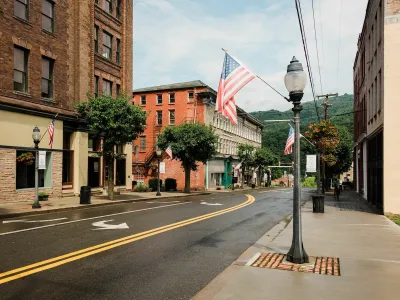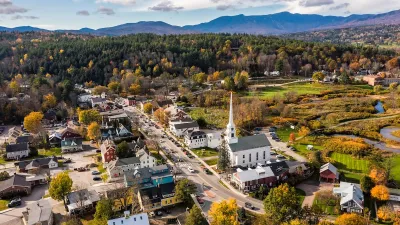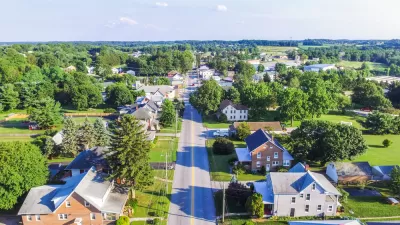Allowing federal employees to work from home can deepen government agencies’ understanding of communities’ needs and create economic opportunities for local residents.

In a commentary in the Daily Yonder, Christopher Chavis argues that remote work, contrary to the beliefs of some political leaders, makes for a stronger, more knowledgeable, and more skillful federal workforce and benefits rural communities.
In Chavis’ view, remote work decentralizes power and empowers rural communities by opening up federal roles to more people. “Remote work made it possible for individuals in rural areas to take on roles previously limited to urban centers, thus giving them greater influence within the federal bureaucracy.”
Remote work and technology have, says Chavis, also boosted collaboration. “A person in Claremont, New Hampshire, can work in real-time with someone in Claremont, California. This means that people from both urban and rural communities can collaborate seamlessly, bringing diverse perspectives to the table.”
These benefits come in addition to more tangible effects such as higher incomes and access to job opportunities for young people who want to stay in their rural communities.
Most importantly, Chavis writes that remote work allows federal workers to remain in touch with their communities and ensure fairness when it comes to grant reviews and other bureaucratic processes.
FULL STORY: Commentary: Remote Work Empowers Rural Workforce and Strengthens Federal Government

Alabama: Trump Terminates Settlements for Black Communities Harmed By Raw Sewage
Trump deemed the landmark civil rights agreement “illegal DEI and environmental justice policy.”

Study: Maui’s Plan to Convert Vacation Rentals to Long-Term Housing Could Cause Nearly $1 Billion Economic Loss
The plan would reduce visitor accommodation by 25% resulting in 1,900 jobs lost.

Planetizen Federal Action Tracker
A weekly monitor of how Trump’s orders and actions are impacting planners and planning in America.

Waymo Gets Permission to Map SF’s Market Street
If allowed to operate on the traffic-restricted street, Waymo’s autonomous taxis would have a leg up over ride-hailing competitors — and counter the city’s efforts to grow bike and pedestrian on the thoroughfare.

Parklet Symposium Highlights the Success of Shared Spaces
Parklets got a boost during the Covid-19 pandemic, when the concept was translated to outdoor dining programs that offered restaurants a lifeline during the shutdown.

Federal Homelessness Agency Places Entire Staff on Leave
The U.S. Interagency Council on Homelessness is the only federal agency dedicated to preventing and ending homelessness.
Urban Design for Planners 1: Software Tools
This six-course series explores essential urban design concepts using open source software and equips planners with the tools they need to participate fully in the urban design process.
Planning for Universal Design
Learn the tools for implementing Universal Design in planning regulations.
Caltrans
Smith Gee Studio
Institute for Housing and Urban Development Studies (IHS)
City of Grandview
Harvard GSD Executive Education
Toledo-Lucas County Plan Commissions
Salt Lake City
NYU Wagner Graduate School of Public Service





























